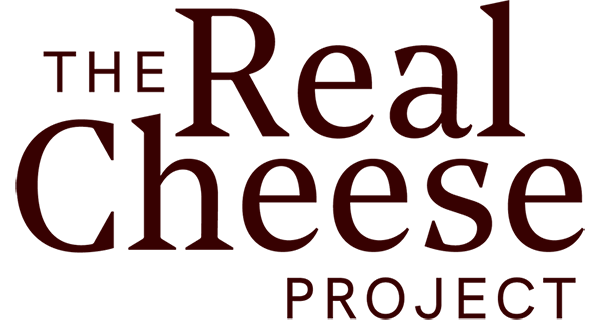The Wensleydale Revival
Sam Brice interviews Andy Swinscoe from The Courtyard Dairy.
Farmhouse Wensleydale is one of the cornerstones of British cheesemaking tradition, but became extinct by the end of the 20th century. We found ourselves in a world where Wensleydale’s factory-made equivalent was all that was on offer – white, crumbly, fruit-studded and unrecognisable from the original.
When Andy and Kathy Swinscoe opened their cheese shop in Settle, North Yorkshire, over 12 years ago, they had an opportunity to help change the course of this humble cheese’s history. We caught up with Andy to find out more.
Andy Swinscoe from The Courtyard Dairy.
Photo credit: Angus D. Birditt @angusdbirditt
WHAT'S THE DIFFERENCE BETWEEN FARMHOUSE AND MASS-PRODUCED WENSLEYDALE?
Factory Wensleydales have to balance consistency, speed, efficiency, shelf life, cost and flavour. As a result, they've sped up to produce a drier, crumblier, tarter cheese. Old fashioned Wensleydales are softer and moister, with a more rounded flavour - but retain that brightness of acidity. This is a result of their slower, more laborious recipe, traditional cultures, and less heat and lower acidities in the making.
WHY DID TRADITIONAL WENSLEYDALE DISAPPEAR?
Like many British cheeses, the decline is tied up in the industrial revolution, with a move towards more standardised factory production. This was exacerbated by the creation of the Milk Marketing Board, as there was now more demand for milk, and finally the impact of Second World War rationing. Wensleydale was allowed in the ration book, but it had to be made to the new 'white' Wensleydale method - stable to mature and fast to make. There was no point continuing to make characterful individual farm cheese.
HOW DID ITS REVIVAL COME ABOUT?
It all started when we set up The Courtyard Dairy in 2012. We were amazed that an iconic British cheese, that had been made in The Dales for thousands of years, had no farm varieties left. So when local farmers started to approach us wanting to get into cheesemaking, we knew what we wanted to encourage.
WHO MAKES IT NOW?
Fellstone (Whin Yeats Farm) - Tom and Clare Noblet were the first to restart farm Wensleydale making. Taking influence from an old Ministry of Agriculture recipe, their make involves a much gentler, gradual fermentation with more use of heat, but faster drainage. This gives it a supple, bouncy texture.
Stonebeck (Low Riggs Farm) - Andrew and Sally Hattan farm 20 native Northern Dairy Shorthorns on diverse hay meadows. Their recipe is lower temperature, very stop/start, and uses bags to control how fast the cheese develops. It gives them a soft texture and showcases the richness of their milk.
Yoredale (Curlew Dairy) - This is a ‘slowed down’ version of the industrial recipe. Ben and Sam Spence had great help from David Hartley from Wensleydale Creamery, but in order to achieve a softer textured cheese and delicate but rich flavour, they evolved the recipe using traditional techniques like shovelling the curd and elongating the cheesemaking process.
TELL US ABOUT THE WENSLEYDALE PROJECT
The Wensleydale Project was something we curated to document the current production methods of farmhouse Wensleydale for future generations, and explore the challenges of making it.
Three cheesemakers made their variation of a Wensleydale recipe at The Courtyard Dairy during 1 week in July - using the same equipment, milk source and maturation method. They then made the same recipes on their farm (as normal), so we could see the extent that their milk influences the flavour of the cheese.
As the final part of the project, 14 experienced cheesemakers from across the country came together to form the first ever Northern Dairy Cheese School, to discuss and taste the outcomes. A full report on the project will be available in 2025.
WHY ARE REGIONAL CHEESES LIKE WENSLEYDALE IMPORTANT?
For me, they are a true reflection of the farm they come from. They are part of our social history and food culture - too often neglected as boring or old-fashioned, especially against the more 'sexy' oozy continental types. But a good territorial cheese can be an amazing thing - complex, rich, satisfying and 'a slice of history'.
WHERE CAN WE BUY TRADITIONAL FARMHOUSE WENSLEYDALE?
At The Courtyard Dairy (thecourtyarddairy.co.uk), we do a Taste of the Dales box where you can sample all three. But any cheese shop worth their salt should have at least one. I would say that though, we're from Yorkshire.

